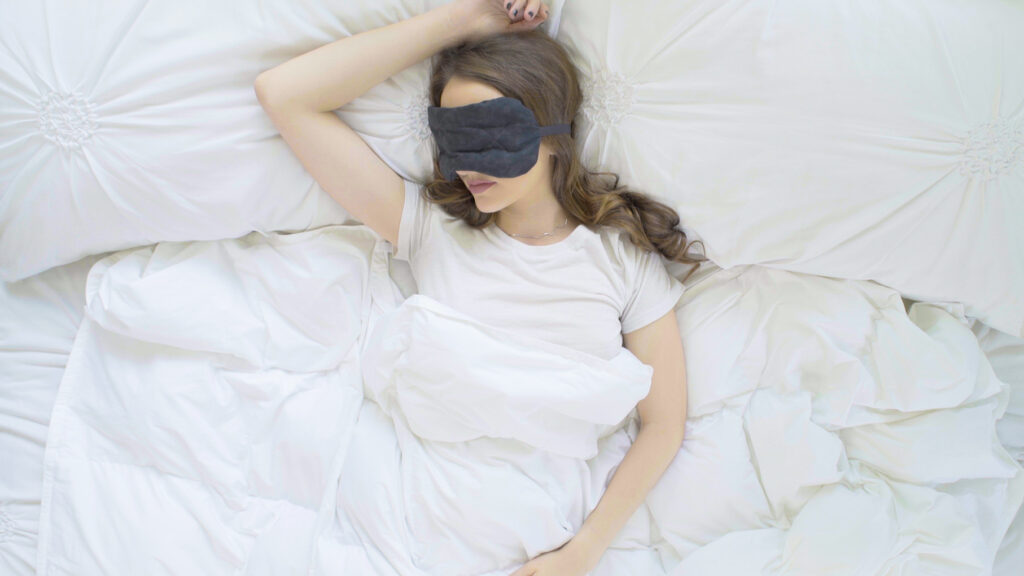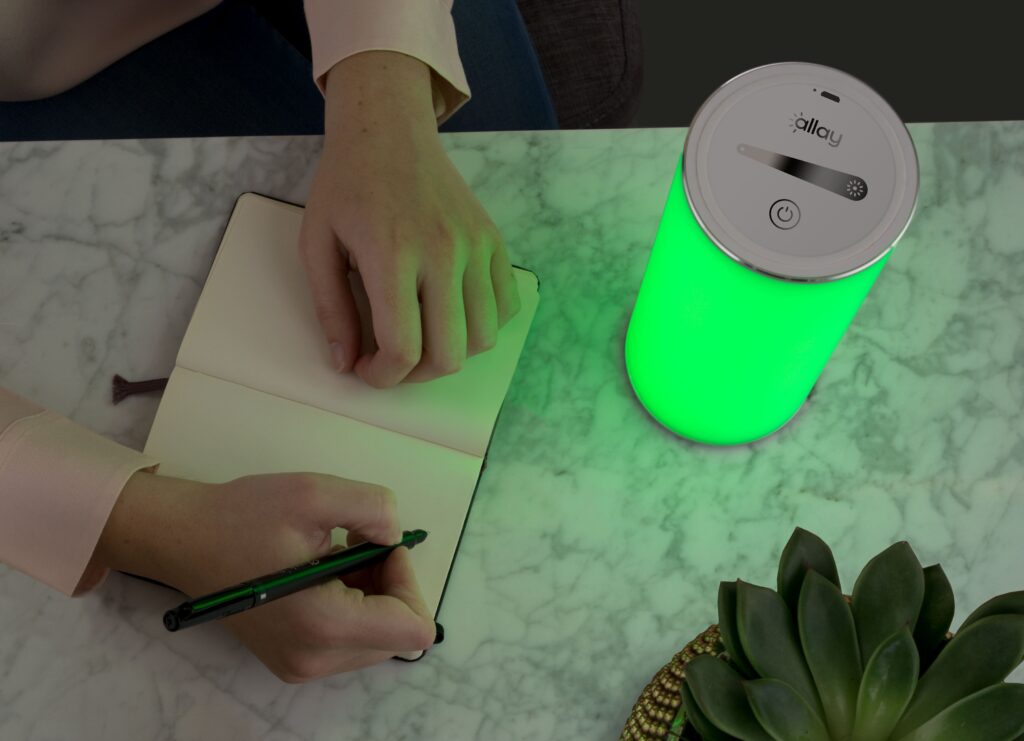Table of Contents
Introduction
So we know that sleep and mental wellness go hand in hand. Today we are talking about something essential that affects our overall well-being: the connection between sleep and mental wellness. It’s no secret that a good night’s sleep can leave us feeling refreshed and rejuvenated, but did you know that it also plays a vital role in our mental health? In this post I’d like to explore and share the fascinating link between sleep and mental wellness, uncovering the science behind it and providing practical tips to improve both. Let’s dive in!

Understanding Sleep
Before we get into the connection between sleep and mental wellness, let’s take a moment to understand sleep itself. Sleep is a fundamental biological process that allows our bodies and minds to recharge. It is divided into several stages, each serving a unique purpose in maintaining our overall health and well-being. These stages include light sleep, deep sleep, and rapid eye movement (REM) sleep. During these stages, our bodies repair themselves, memories are consolidated, and crucial hormonal processes occur. For more guidance on sleep checkout the Stanford Sleep Medicine Center. This is where I went for treatment with my several decade long battle with sleep.
The Impact Of Sleep On Mental Wellness
A lack of quality sleep can have a profound impact on our mental health. Research has shown that sleep deprivation can lead to an increased risk of developing mental health disorders. It’s not just feeling groggy the next day; it can go much deeper than that. Sleep deprivation has been linked to mood disorders such as depression and anxiety. It can also contribute to cognitive impairments, affecting our ability to concentrate, make decisions, and regulate emotions effectively.
The Science Behind The Connection
To truly understand the connection between sleep and mental wellness, we need to explore the underlying science. Our brains undergo essential processes during sleep that directly impact our mental well-being. Neurotransmitters, such as serotonin and dopamine, play a crucial role in regulating sleep patterns and mood. Additionally, hormones like melatonin help synchronize our sleep-wake cycles, known as the circadian rhythm. Disruptions in these processes can lead to sleep disturbances and subsequent mental health challenges.
Sleep Disorders And Mental Health
Sleep disorders can further complicate the relationship between sleep and mental wellness. Conditions like insomnia, sleep apnea, and restless leg syndrome can disrupt sleep patterns, leaving you feeling exhausted and mentally drained. These disorders can exacerbate existing mental health conditions or even contribute to their development. Recognizing the signs of sleep disorders is essential for seeking the right treatment and improving overall mental well-being.
Strategies For Improving Sleep And Mental Wellness
Now that we understand the impact of sleep on mental wellness, let’s consider some strategies to improve both. Establishing healthy sleep habits is key. Start by maintaining a consistent sleep schedule, aiming for the recommended minimum of seven hours. The eight hour thing is a myth. Trust me I just went through treatment at Stanford. You don’t need 8 hours to function and maintain a healthy lifestye. Creating a sleep-friendly environment, free from distractions and comfortable for rest, can make a significant difference. Regular exercise, especially earlier in the day, can promote better sleep quality and enhance mental well-being.
The Role of Mindfulness in Sleep and Mental Wellness
Mindfulness practices can be powerful tools for improving both sleep and mental wellness. Mindfulness meditation, in particular, has shown positive effects in reducing stress and promoting relaxation. Incorporating simple mindfulness exercises into your bedtime routine, such as deep breathing or body scans, can help calm the mind and prepare it for a restful sleep. By practicing mindfulness, you can cultivate a greater sense of awareness and reduce the racing thoughts that often keep us awake at night.
Creating a Bedtime Ritual for Optimal Sleep
Establishing a bedtime ritual can significantly enhance your sleep quality and mental well-being. Engage in relaxing activities before bed, such as reading a book, taking a warm bath, or practicing gentle stretching exercises. These activities signal to your body that it’s time to wind down and prepare for sleep. Remember to limit exposure to electronic devices, as the blue light emitted can interfere with your natural sleep-wake cycles. Instead, opt for calming activities that promote tranquility and relaxation. Checkout this post on the allay lamp and how it helps me unwind before bed.
Seeking Professional Help
If you’re experiencing persistent sleep issues or mental health concerns, don’t hesitate to seek professional help. Consult a sleep specialist or mental health professional who can offer guidance and treatment options for your specific needs. They can help diagnose and address any underlying sleep disorders or mental health conditions, paving the way for improved sleep and enhanced mental wellness.
If you’re interested in learning more about online therapy, I recommend checking out BetterHelp. They offer online therapy sessions with licensed therapists at an affordable price point.
As you know I’m a huge proponent of mental wellness and ensuring we all get the help we need when we need it. And of course, I don’t want you just to get any help I want you to get the right help so I am now sponsored by BetterHelp.
BetterHelp is the world’s largest therapy service, and it’s 100% online.
BetterHelp offers a network of over 25,000 licensed and experienced therapists who can help you with a wide range of issues.
Just click on the link below, answer a few questions and get matched with a therapist from the network.
One of the most amazing features of BetterHelp, if you don’t jive with your therapist you can switch to a new one that’s a better fit for you any time free of charge.
With BetterHelp, you get the same professionalism and quality you expect from in-office therapy, but with a therapist who is custom-picked for you, more scheduling flexibility, and at a more affordable price.

Conclusion
In conclusion it’s clear, there is a major connection between sleep and mental wellness which means prioritizing quality sleep is essential for our overall well-being. By understanding the impact of sleep on mental health, implementing strategies to improve sleep habits, and embracing mindfulness practices, we can nurture our mental wellness and promote a more vibrant, fulfilling life. Remember, sleep is not just a luxury—it’s a vital component of self-care and a cornerstone of mental well-being. Sweet dreams!
For more information on healthy sleep habits and sleep disorders, check out the National Sleep Foundation’s comprehensive guide: SleepFoundation.org.
FAQ
Q: What about sleep medication?
A: Sleep medication can be prescribed in certain cases to help individuals manage sleep disorders or acute sleep problems. However, it’s important to consult a healthcare professional before using sleep medication, as they can assess your specific situation and recommend the most appropriate treatment plan. Sleep medication should be used under professional guidance and for short-term relief, as long-term reliance on medication may not address the underlying causes of sleep issues.
Q: Green light therapy seems to help with stress and anxiety. Is it good before bed?
A: Green light therapy has shown promising results in reducing stress and anxiety symptoms. However, using green light therapy before bed may not be ideal, as exposure to bright light, regardless of color, can stimulate the brain and disrupt sleep. It’s recommended to incorporate green light therapy earlier in the day, preferably during morning hours, to take advantage of its energizing and mood-enhancing effects. As bedtime approaches, it’s best to create a dim and soothing environment to signal to your body that it’s time to wind down and prepare for sleep.
Q: Perhaps therapy could be good for my sleep so I feel less worried?
A: Therapy can indeed be beneficial for improving sleep and reducing worries that may interfere with sleep quality. Cognitive-behavioral therapy for insomnia (CBT-I) is a type of therapy specifically designed to address sleep issues. It focuses on identifying and changing thoughts and behaviors that contribute to poor sleep. By working with a therapist, you can develop effective coping strategies, learn relaxation techniques, and gain a deeper understanding of the underlying factors impacting your sleep. Therapy can provide valuable tools to manage stress, anxiety, and other concerns that affect your sleep and overall mental wellness.
A product I love that helps me with sleep is the Allay Lamp.

It’s green light therapy. Learn more about it here in a post where I share more about the power of Green Light Therapy for sleep.
Here’s more insights on sleep from the blog –
- Create A Calming Bedtime Routine For Better Sleep
- Green Light Therapy For Insomnia
- Best Guided Sleep Meditation On Youtube
- Create A Calming Bedtime Routine For Better Sleep
And if you are interested in the Allay Lamp check it out here.

Comments +
The Connection Between Sleep and Mental Wellness: Exploring the Link
Mental Wellness